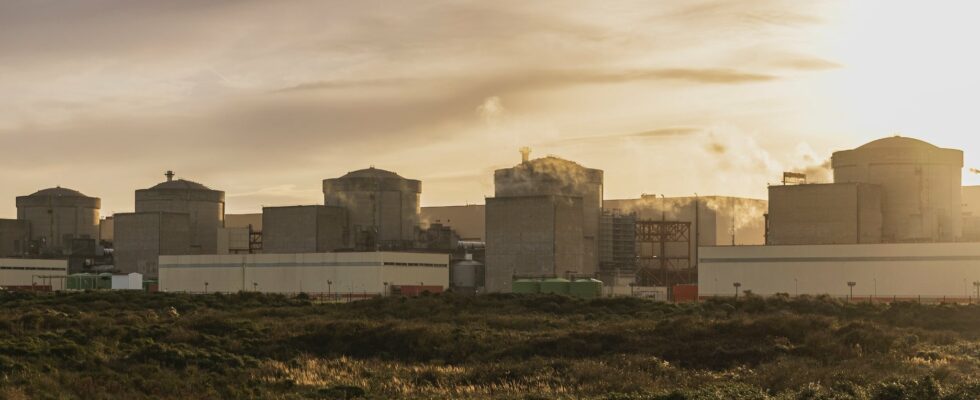Even if this is not its intention, the new report from the Court of Auditors will undoubtedly give food for thought to anti-nuclear activists. He points out that the profitability of EPRs is uncertain at best, mediocre at worst. For Flamanville 3, in a scenario where electricity sales prices do not reach 90 euros per megawatt hour, it seems difficult to envisage a profitability of 2%, note the experts. And to achieve a profitability of 4%, a selling price of more than 138 euros would be required. However, it was 77 euros last month and below 50 euros before the Covid-19 pandemic. “Nuclear power is nevertheless part of the solutions for the future,” assures Franck Gbaguidi, director of sustainable development at Eurasia Group. On condition that its development is well structured, which involves, in particular, more realistic hypotheses on the EDF side.
L’Express: The Court of Auditors points out the profitability of the Flamanville 3 reactor. It also denounces the vagueness surrounding that of future EPRs. Should we be worried?
Franck Gbaguidi: It has long been known that the profitability of large nuclear installations is not very high. Four years ago, the Court of Auditors already published a report pinpointing the overruns on the Flamanville site and therefore the impact on the profitability of the project. We might be tempted to put the problem into perspective. After all, when we look at France’s energy policy as a whole, the profitability of EPRs is only one element to consider among others. The revival of the atom will create jobs. It allows us to export electricity. It will also strengthen our energy security, a theme that particularly resonated during the last presidential elections and after the energy crisis triggered by the invasion of Ukraine. However, the message from the Court of Auditors is above all to say: be careful, the profitability of future EPRs should not go from a figure close to zero to nothing at all. Because this would create a cascade of economic and even environmental problems. The tone used in the report is more severe than four years ago, because some of the recommendations were not followed.
What are the elements which, according to you, most exasperate the magistrates of the Court of Auditors?
First of all, the construction times of the reactors, and the additional costs that go with them. There are significant and systematic overruns in this area. Certainly, to avoid the excesses observed for the EPRs of Olkiluoto in Finland, Hinkley Point in the United Kingdom or Flamanville in France, EDF has set up a new organization. But today, on average worldwide, it takes 12 to 13 years to complete the construction of a reactor. However, EDF defends the idea that it will be able to do this in seven to nine years. It’s a pipe dream. Especially since there are many uncertainties. For example, the development of renewable energies will lead to an influx of cheap electrons in France, and these energies are more and more priority on the network, which constrains the load factor of nuclear reactors. Furthermore, energy demand for the coming years is difficult to predict. These elements are likely to weigh on the profitability of future EPRs. In its report, the Court of Auditors therefore asks stakeholders in the sector to be more cautious about the estimates of these variables. Because the gap with reality is growing.
The Court of Auditors also asks France to slow down the deployment of new EPRs if there remains too much uncertainty about the profitability or design of the reactors. EDF might even have to give up on certain projects abroad! It’s a strong message.
Absolutely. The report recommends “withholding the final investment decision for the EPR2 program until its financing has been secured and detailed design studies have progressed.” It also recommends “ensuring that any new international project in the nuclear field generates quantified gains and does not delay the timetable of the EPR2 program in France”. If we take this instruction literally, this means that EDF could have to curb its ambitions abroad, to ensure as a priority the good development of the sector in France. This is good governance. But the message contrasts with the current impression of a sector firing on all cylinders.
.
